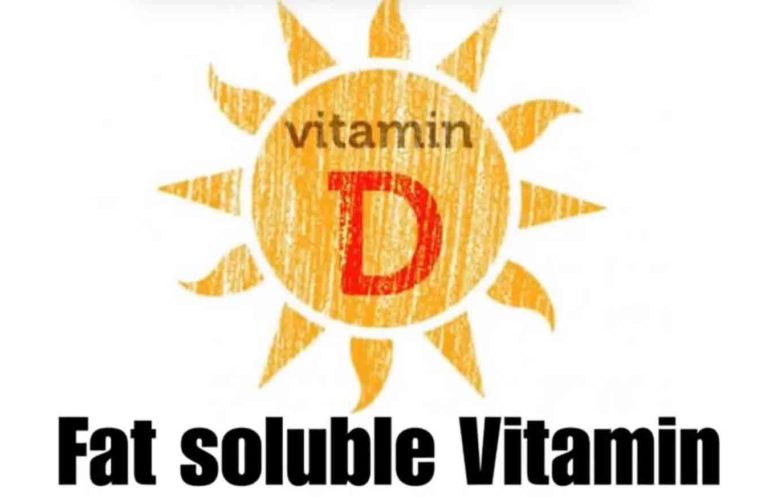What is vitamin D ?
Vitamins are substances that your body needs to grow and develop normally. Vitamin D is a group of fat soluble secosteroids responsible for increasing absorption of calcium, magnesium and phosphate and multiple other biological effects. In humans, the most important compounds in this group are vitamin D3 and D2. You get vitamin D in three ways : through your skin, from your diet and from supplements. Your body naturally forms vitamin D after exposure to sunlight. However, too much sun exposure can lead to skin ageing and skin cancer. Unlike other vitamins, vitamin D functions like a hormone, and every single cell in your body has a receptor for it. Your body makes it from cholesterol when your skin is exposed to sunlight. Vitamin D deficiency is very common. An estimated 1.5 billion people around the world have low levels of vitamin D in their body.
Functions of vitamin D in your body
- Regulates the way intestines absorb calcium, phosphorus and magnesium from food
- Helps maintain blood levels of calcium within normal limits
- Reduces the risk of colon cancer, breast cancer and arthritis
- Prevents depression
- Reduces bone pain
Deficiency of vitamin D leads to
- Poor calcium absorption
- Poor immune system
- Low blood pressure
- Weak muscles
Causes of vitamin D deficiency
- Body not receiving enough sunlight
- Low cholesterol in diet (low fat diet and not eating sufficient healthy fat)
- Liver digestive issues
- Stress (secretion of cortisol hormone)
Symptoms of vitamin D deficiency
- Getting sick and infected very often (weak immune system)
- Frequent cold, flu, bronchitis
- Random fatigue and tiredness (due to low BP)
- Bone and back pain (happens due to low calcium absorption)
- Feeling low or depressed
- Slow healing of regular wounds
- Hair fall or alopecia – vitamin D helps create new hair follicles and stimulates new cell growth
- Regular muscle pain
- Acceleration of bone loss especially post menopause
How much vitamin D do we need ?
- Quantity of vitamin D is measured in international units or IU
- Under 50:400 IU
- 51-70:600 IU
- 70+:800 IU
- Pregnant and nursing mothers need 100-200 IU more as per their age
Sources of vitamin D
- Our body can manufacture vitamin D for us when the skin is exposed to adequate sunlight
- Make sure you expose your body ti the sun for 10-15 minutes twice or thrice a week between 0800 hours and 1600 hours
- Food sources
- Milk
- Salmon, fatty fish
- Cod liver oil
- Fortified food items
- Butter, eggs
- Calcium supplements with extra vitamin D
- You must avoid supplements if the ingredients list includes
- Core level products
- Glandular tissue
Vitamin B12

Functions of vitamin B12
- Formation of blood cell formation (nucleic acid)
- Maintaining outer layer of nervous system
- DNA reproduction
- Help treat pernicious anaemia
- Metabolising fats and protein (methionine)
- Helps make creatine
- Helps fight depression
- Maintaining bone health
Symptoms of vitamin B12 deficiency
- Pale, jaundice like skin
- Weakness and fatigue
- Sensation of pins and needles
- Change of mobility : the way you walk, coordination and balance
- Red and swelled tongue
- Breathlessness, racing heart and dizziness
- Disturbed vision
- Frequent mood changes
- Inexplicable loss of appetite
How much vitamin B12 you need ?
| Life stage | Recommended amount |
| Birth to 6 months | 0.4 mcg |
| Infants 7-12 months | 0.5 mcg |
| Children 1 – 3 years | 0.9 mcg |
| Children 4 – 8 years | 1.2 mcg |
| Children 9 – 13 years | 1.8 mcg |
| Teen 14 – 18 years | 2.4 mcg |
| Adults | 2.4 mcg |
| Pregnant women | 2.6 mcg |
| Breastfeeding mothers | 2.8 mcg |
Best sources of vitamin B12
- Eggs, milk and other dairy products
- Chicken, fish (tuna, sardines), clams
- Fortified soy, coconut and coconut milk
- Fortified nutritional yeast
- Fortified cereals
- Spiruline
- Cholorella
- Nori
Tests for vitamin B12 deficiency
- Urine test
- Blood test
- These tests will look at the levels of following in your body
- Overall vitamin B12
- Methylmalonic acid(MMA)
- Homocysteine
- Holotranscobalamin
It is important to understand that vitamins D and B12 are extremely important. They play a crucial role in maintaining good health. It should be ensured that both these vitamins are taken in adequate quantity. Any deficiency should be discovered well in time and if required supplements should be taken. You should spend atleast the bare minimum time needed out in the sun. Try to include food from all food groups in your diet.
Stay Healthy.. Stay Fit!!
